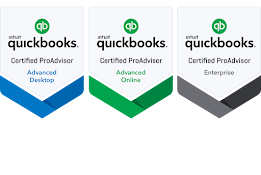 The payroll service I often refer to is named Gusto. They just added a certification program for accountants to learn about Employees, Benefits, and HR. Took me quite a few days of studying because there was so much to learn and integrate into my practice.
The payroll service I often refer to is named Gusto. They just added a certification program for accountants to learn about Employees, Benefits, and HR. Took me quite a few days of studying because there was so much to learn and integrate into my practice.
As a small business financial analyst I'm used to thinking about how to relate the financial reports to the businesses clients are running and have conversations with them about how to get what they want. This Payroll training taught me how to do this same process with staffing, benefits and HR.
It's brilliant of Gusto. Even though they spent a fortune developing the course material, by teaching accountants how to use Gusto for payroll, the services Gusto offers and when to refer a situation to Gusto, the company will get a return on their investment by needing less tech support for accountants. Accountants in turn train customers. If you go with Gusto, you'll quickly learn that they are committed to going all out with tech support, which is great for customers, but it still it costs. If they can think of a less expensive way to get that information across, it's going to be a win for their business.
I think this new certification is a win/win/win situation for Gusto, me, and my clients.
If you're interested in learning more about Gusto, login using this link;
https://gusto.com/partners/invite/qc-computing-llc
This link says I referred you. There is no cost to you (until you actually run payroll) but you will receive invaluable advantages if you decide to go with them. It's so frustrating when clients want the advantages but they didn't use my link and Gusto won't compromise, so use this link please.




 .
. 
